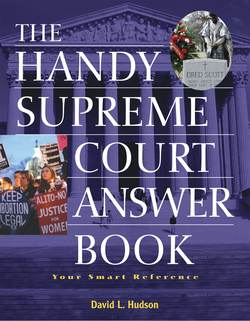Читать книгу The Handy Supreme Court Answer Book - David L Hudson - Страница 189
На сайте Литреса книга снята с продажи.
In what case did the Court rule that Virginia law had to take a backseat to a treaty?
ОглавлениеThe U.S. Supreme Court ruled 4–0 in Ware v. Hylton (1796) that a 1777 Virginia law allowing Revolutionary War–era debtors to pay a reduced amount of money to the state treasury rather than paying British creditors was invalid because it conflicted with a treaty signed by the United States with Great Britain in 1783. This so-called Treaty of Paris provided that British creditors should be able to recover the debts that were owed to them before and during the war. The treaty provided: “It is agreed, that creditors on either side, shall meet with no legal impediment to the recovery of the full value in sterling money, of all bona fide debts heretofore contracted.”
U.S. Supreme Court justice William Cushing joined his fellow justices in ruling unanimously that a U.S. treaty takes precedent over a state law. “Here is a treaty, the supreme law, which overrules all State laws,” said Cushing. Hulton Archive/Getty Images.
The Court determined that this treaty trumped the Virginia state law. Justice Samuel Chase explained that “it is the declared duty of the State Judges to determine any Constitution, or laws of any State, contrary to that treaty (or any other) made under the authority of the United States, null and void. National or Federal Judges are bound by duty and oath to the same conduct.”
